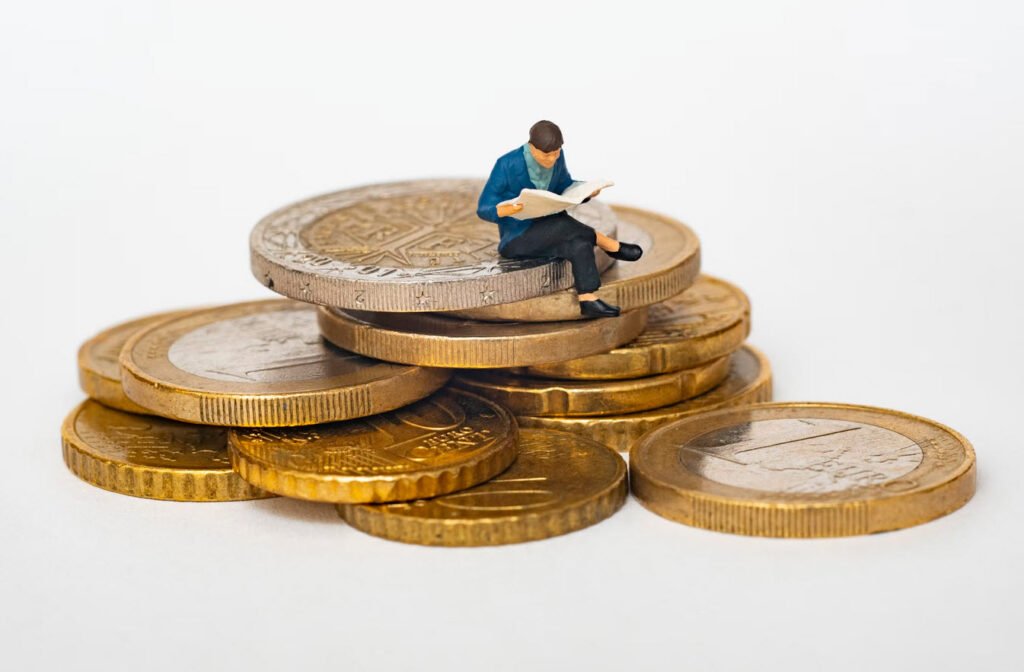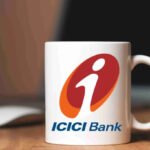Test your knowledge with this quiz. Use your dictionary to check the meanings of the words and expressions in italics, or any other words and expressions that you do not understand.
1. What is the official name of the currency used in the United Kingdom?
2. In which of the following denominations are banknotes printed?:
(a) £1 (b) £2 (c) £5 (d) £10 (e) £15 (f) £20 (g) £25 (h) £30 (i) £50
3. Can banknotes that are printed in Scotland and Northern Ireland be used in England and Wales?
4. Is the Euro legal tender in the UK?
5. In what situation would exchange rates and commission charges be relevant?
6. If you want to open a bank account in the UK, what will you need to show the bank?
7. In addition to looking after your money, and lending you money, what other services can banks provide?
8. What is the difference between a loan and a mortgage?
9. What is the difference between a bank and a building society?
10. If you have a regular, full-time job, why is it important for you to have a bank account?
11. Each month, a bank sends its customers a printed record of the money they have withdrawn from, and put into, their bank account. What is this record called?
(a) a balance (b) a credit note (c) a money order (d) a statement
12. Banks and building societies often automatically offer their customers an overdraft facility. What is this?
13. What is the difference between a credit card and a debit card?
14. What is the difference between a debit card and a cash card?
15. To use a cash card, debit card or credit card, you will need to know and use your PIN. What do you think these letters stand for?
16. Do you have to pay to use a cash machine?
17. Often, when using a debit card in a large store (especially in a supermarket), you will be asked if you want any cash back. What does this mean?
18. A major shopping chain offers you a store card. What is this?
19. Credit card companies in the UK are often criticised in financial reports written for consumers. Why do you think this is?
20. Before you borrow money, you should always check the APR. What is this?
21. If you have a savings account, you pay tax on the interest you receive. However, there is one special type of savings account in which you do not pay tax on interest. What is the name of this kind of account?
(a) an ISA (b) an ISBN (c) an IRS (d) an ISO
22. Many people pay for household bills, and make other regular payments, using direct debit. What do you think this is?
23. What is the difference between a direct debit and a standing order?
24. You apply for a loan, but you are refused credit. Can you find out why?
25. Which of the following are not banks in the UK?
(a) Waitrose (b) NatWest (c) Lloyds TSB (d) John Lewis (e) RBS (f) Barclays (g) Debenhams (h) HSBC (i) BHS (j) Asda
26. Your bank account is in the red. What does this mean?
27. Where would you go to open a National Savings Account?
28. If you shop or bank online, why is it important that you see a padlock symbol (similar to this: ) at the bottom of your computer screen: ?
29. What do we call organisations that sell insurance on behalf of different insurance companies? Choose from the following:
(a) breakers (b) brokers (c) braziers (d) breadwinners (e) broadcasters
30. What is social security?
Correct Answers:
- The pound sterling (shown by the symbol £. There are 100 pence in the pound).
- (a) £5, (b) £10, (c) £20, (d) £50 (Coins come in denominations of 1p, 2p, 5p, 10p, 20p, 50p, £1 and £2).
- Yes. And banknotes printed by the Bank of England are legal tender in Scotland and Northern Ireland.
- No, the United Kingdom does not use the Euro. Some larger shops in popular tourist areas may accept Euros, although they will give customers change in sterling. They may also accept US dollars.
- If you are changing foreign currency in a bank or foreign exchange (also called a bureau de change). The exchange rate is the value of the money of one country when you change it into the money of another country. Commission charges refer to the money you must pay for the bank, etc, to change your money.
- Some form of identification that shows your name and the place where you live (for example, a utilities bill, a passport, a driving licence, etc).
- Among other things, banks can sell you insurance, exchange foreign currency, arrange and act as executors for wills, offer financial advice, and offer special banking services for small companies and independent traders. You can also invest money in shares through a bank, send money abroad and pay household bills.
- A loan is money that you borrow in order to buy something. A mortgage is a special kind of loan used to buy a house or other building over a period of time.
- Banks and building societies provide almost identical financial services. However, building societies are generally considered to be better places to save money (they pay higher interest), and also to get a mortgage if you want to buy a house (because they charge a lower rate of interest).
- The main reason is that many UK companies pay their employees’ salaries directly into their bank account.
- (d) a (bank) statement. A balance is the amount of money you have in your account.
- An overdraft facility lets you take money from your account even when there is no money in it. There is a limit to the amount you can take out, and in most cases you will need to pay interest when this happens.
- A credit card (for example, Visa, American Express) allows you to buy something from a shop and pay for it later. A debit card (for example, Maestro) is a substitute for cash: money is taken directly from your bank account.
- You can use a debit card to pay for products and services in shops, etc. A cash card can only be used to withdraw money from a cash machine (often called a Cashpoint, although this is a registered trade name for the cash machines used by Lloyds TSB). Most debit cards have a cash withdrawal facility, but not all cash cards have a payment facility.
- Personal identification number. You will need to enter this into a cash machine before you withdraw cash, and you will need to enter it into a hand-held computer when you use a card in a shop.
- Sometimes. It depends on the company that owns and operates the machine.
- The shop can give you some cash from the till, and the total amount of cash you take will be added to your shopping bill. Many people use this system in addition to using a cash machine, to withdraw cash.
- A store card works like a credit card, but you can only use it in that store or chain. Store cards have received a lot of criticism because many of them charge a very high rate of interest.
- They offer customers a high credit limit, but they also charge high rates of interest, especially if the customer fails to pay off his / her balance, or part of that balance, within a specified time.
- APR = Annual Percentage Rate, the rate of interest that you must pay over a year when you borrow money (for example, if you borrow £1000 at an APR of 10%, and you pay the money back over 1 year, you will need to pay a total of £1100).
- (a) an ISA (Individual Savings Account). People who hold an ISA can put in a limited amount of money each year (currently up to £3000), and interest is calculated and paid at the end of the financial year (at the beginning of April). A lot of different banks, building societies and finance companies offer ISAs, with varying rates of interest.
- This is an order to your bank to regularly pay money from your account to a person or organisation.
- Both systems work in similar ways. However, with direct debit, the amount of money that goes out of your account can change, and this amount is decided by the person or company you are paying (for example, an electric bill, which changes each quarter). With a standing order, the amount of money stays the same each time.
- If you are refused credit, a bank or other company refuses to let you borrow money, often because you have a bad credit rating. You can ask the company why they are refusing to lend you money, and you can check your credit rating (for a fee) with a credit reference agency.
- (a), (d), (g), (i) and (j) are supermarkets or department stores.
- This is an informal expression which means that you have less than £0 in your account. In other words, you are overdrawn. If you have money in your account, we can say that you are in the black.
- The post office. National Savings and Investments is a government-backed savings and investments service that operates through the post office.
- Online shopping / banking is done on the Internet. The symbol shows you that you are using a secure site, and no one can access the information you are entering on your computer.
- (b) (insurance) brokers. Many people buy insurance directly from the insurance companies themselves, as this is often cheaper.
- The system by which the government regularly pays money to people who do not have a job, or are too old or ill to work.



